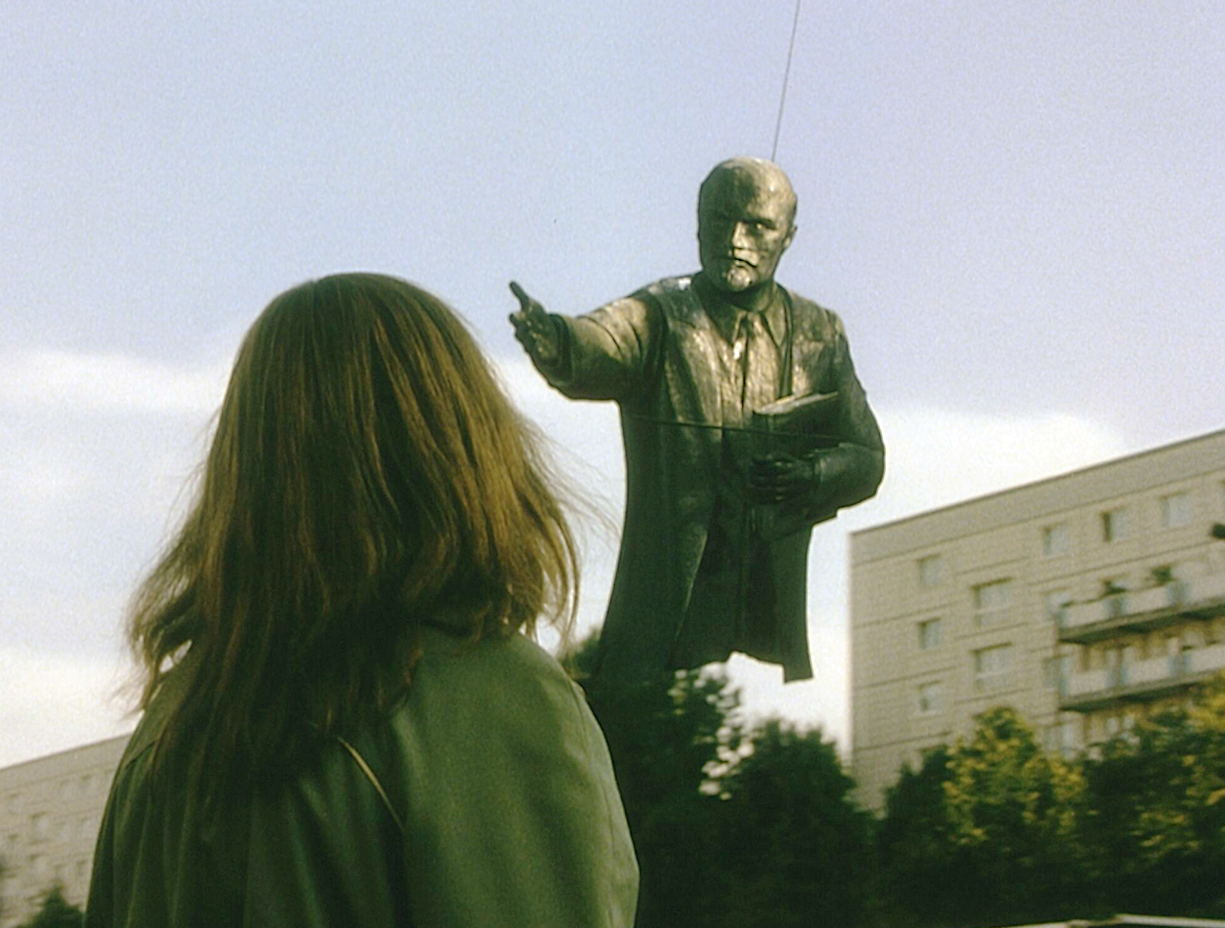Film Friday
Sometimes a film takes a reality that you thought you knew and turns it on its head. Such was the case for me with Goodbye Lenin (2003), the final film in my “Films about Fences” series held this past semester. Unlike the other films I showed, this one involves the trauma of a fence coming down.
The fence in this case is the Berlin Wall and the trauma is the shock to East German sensibilities when they have to negotiate the chaotic complexities of life under capitalism. My friend Reinhard Zachau, who teaches German at the University of the South, informs me that, for many, the identity shock was real and severe.
Christiane, the protagonist’s mother in Goodbye Lenin, must raise her two kids alone when her husband defects to West Germany (she doesn’t have the courage to follow him). To survive, she becomes a loyal member of the East German Communist Party. When she witnesses her son being arrested in a protest march, she suffers a stroke and falls into a coma. (As Alex puts it, “On the evening of October 7, 1989 several hundred people got together for some evening exercise and marched for the right to go for walks without the Berlin Wall getting in their way.”)
Because of the coma, she misses the dismantling of the wall and the reunification of the two Germanys. When she suddenly awakes, the doctor tells the family that a second shock could kill her. To protect her, the family creates the illusion that history never happened. They engage in a series of elaborate maneuvers to create the world before the Wall came down.
The bedridden mother may be unable to leave the apartment, but she can still watch television. Alex and a friend therefore shoot fake news broadcasts, which they slip in via videotape. The illusion becomes harder and harder to maintain, however. When a large coca cola ad appears outside the window, the son shoots a television broadcast revealing that the world now acknowledges that the East Germans invented coke. When the mother slips out of the apartment and sees West Germans in the streets, a news broadcast reports waves of immigrants entering East Germany to escape the sterility of consumer capitalism.
The idea for the film may have come from the darkly comic Heinrich Boll short story “Christmas Every Day,” in which a family stages a daily Christmas celebration for a grandmother to convince her that all is well after Germany’s World War II defeat. In that case, the story is about the power of denial.
Goodbye Lenin, it seems to me, is not so much about denial as an attempt to help East Germans through their identity shock. One can understand why many would feel bruised. Had they accomplished nothing on their side of the wall? Were they joining the West hat in hand and with nothing to contribute? I can imagine the light comic touch of the film providing consolation. At least it acknowledges the transition they are undergoing.
By the end of the film, the mother has figured out what is going on, and we realize that the son is keeping the illusion alive for his own sake. He needs to believe in his mother’s belief. But in a lyrical last broadcast where he realizes he must face up to the changes, he locates Sigmund Jähn, an old cosmonaut and the first German to fly in space, and has him act as Germany’s new chancellor. The fiction is that, having seen the world from space, Jähn realizes how trivial are the boundaries that divide us. Therefore he has ordered the Berlin Wall dismantled.
On a night when fireworks are exploding all over Berlin (for Germany winning the 1990 World Cup, but Alex tells his mother it’s for the Wall coming down), Christiane dies peacefully and Alex lets go of the old Germany. As he says in the concluding voiceover,
She’s up there somewhere now. Maybe looking down at us. Maybe she sees us as tiny specks on the Earth’s surface, just like Sigmund Jähn did back then. The country my mother left behind was a country she believed in; a country we kept alive till her last breath; a country that never existed in that form; a country that, in my memory, I will always associate with my mother.
Put this way, the film becomes an aid to all of us who need to let go of an idealized past and move on into an uncertain future. The mental fences we raise are often products of our own fear. At the moment, Americans need the film’s perspective to respond effectively to inflamed political rhetoric, whether over Latin immigration or gay marriage or our first president of color. The fences of fear must come down, but it’s important to acknowledge how traumatic the process is for many.
The movie, in short, calls for us to be sensitive.
Other posts on films in the “Fences” series:
Franco Brusati, Bread and Chocolate
Go here to subscribe to the weekly newsletter summarizing the week’s posts. Your e-mail address will be kept confidential.
